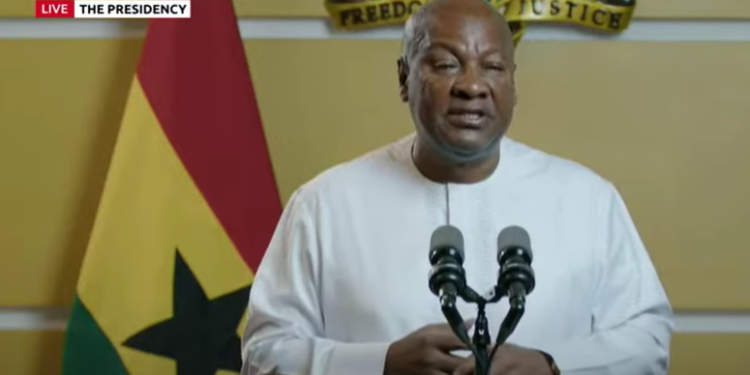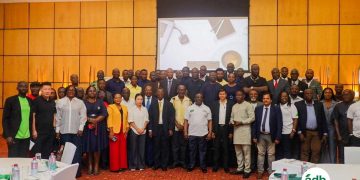Government Finalizing Incentives for Businesses Under 24-Hour Economy Policy Rollout
President John Dramani Mahama has revealed that his administration is finalising a package of incentives to support businesses signing onto the 24-hour economy initiative, marking a major step in the policy’s implementation.
Addressing the nation on Wednesday, May 7, to commemorate his first 120 days in office, the President stated that the Minister for Finance and the Presidential Advisor on the 24-hour economy were completing work on a set of incentives targeted at enhancing business participation.
Among the measures outlined is a collaboration between the Minister for Energy and the Green Transition and the Public Utilities Regulatory Commission (PURC) to introduce smart metering and a Time of Use (ToU) tariff regime — one that offers lower electricity rates during off-peak hours, thereby incentivising businesses to operate around the clock.
“We promised to commence drafting the needed legal amendments and prepare for implementation within the first 120 days — and we have delivered on that promise,” President Mahama declared.
According to the President, Cabinet has already approved significant amendments to the Ghana Investment Promotion Centre (GIPC) Act and the Labour Act. These legislative changes, he said, will improve social protection frameworks, facilitate 24-hour economic operations, and strengthen business-labour relations.
As part of the initial rollout, several government institutions have already transitioned to 24-hour operations.
“The Ghana Investment Promotion Centre has introduced 24-hour premium services to eliminate processing delays for investors,” he noted. “The Ministry of Foreign Affairs has rolled out a 24-hour passport service, and the DVLA has extended its working hours, clearing an 18-month backlog of license applications.”
In the area of employment, President Mahama announced that the Youth Employment Agency (YEA) is set to introduce a new programme dubbed the Graduates in Corporate Support Programme, which will deploy some 20,000 graduates to businesses running 24-hour operations.
To ensure adequate security during nighttime economic activity, the Ghana Police Service is also establishing a dedicated 24-hour police unit to enhance night patrols and introduce advanced surveillance systems.
“We are pursuing new avenues of job creation, expanding opportunities especially for young graduates, and positioning the private sector as a critical engine of sustainable growth,” the President remarked.
Underscoring the broader vision behind the policy, he stated, “This programme will serve as a catalyst for long-term economic renewal anchored on innovation, productivity, and inclusive growth.”
The 24-hour economy initiative is a flagship policy of the Mahama administration, aimed at driving structural transformation across critical sectors such as agriculture, manufacturing, and tourism.








